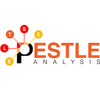Although L'oreal has many strengths, it also has a few concerning weaknesses and threats. This SWOT analysis of L’oreal explains it all.
L’oreal is the leading name in the cosmetic and beauty world. Their extensive portfolio of hair, skin, and makeup products is the reason why. This brand is the only one offering so many inexpensive as well as luxurious beauty options.
And although the company has many strengths, it also has a few concerning weaknesses and threats. This SWOT analysis of L’oreal explains it all.
L'oreal's Strengths
A variety of beauty and cosmetic products.
No one has a bigger share in the beauty and cosmetic world than L’oreal. Many companies decide to branch into this industry with a product line or two. But L’oreal is fully invested in this space and has been since they were founded. You’ll see the L’oreal brand while walking through the makeup, hair, and skincare aisles of your local department store.
L’oreal’sl portfolio of products is astounding. Garnier, Nyx, Maybelline, LANCOME, Shu Uemara… the list continues. L’oreal clearly dominates this industry because they’ve acclaimed such high profile brands under their name.
High quality
L’oreal doesn’t just offer inexpensive, department store products. They’ve also moved into the luxury brand, offering high-quality products for the individual who shops on a richer budget. Or if a customer wants a bit of both worlds — cost-effective and expensive — they can easily find what they’re looking for through L’oreal.
International access
L’oreal’s catalogue boasts brands from all over the world. And you can find L’oreal in more than 120 countries. They manufacture and distribute products in bulk which is less expensive than buying small quantities at a time.
Moving into organic.
Consumers want glowy skin and healthy hair. And for many, that means less chemicals and questionable ingredients in their hair and skin products. It’s more costly for companies to use natural ingredients, but L’oreal didn’t hesitate. On top of putting an end to testing on animals in 1987, they now offer a complete natural and organic line of products.
Endless research
Because L’oreal has so many products in different niches of the beauty and cosmetic industry, the company relies heavily on research and development. Consumers want products that work, but are also safe for their bodies. That means understanding how to offer sun protection in skin care and makeup products. And cutting out sulfates, parabens, and silicones from hair products. L’oreal works with dermatologist, cosmetologists, and scientists to provide the top-of-the-line products customers crave.
L'oreal's Weaknesses
Growing saturation
It seems there’s a new hair care line debuting every day now. More products for straight hair, curly hair, blondes, and specific ethnicities are vying for attention. Although these are all just segments in the hair care industry, it is affecting L’oreal. Even though the company may not be worrying about these new names, they’re still competing with other big companies. Like Sunsilk and Head and Shoulders.
Shrinking profit margins
L’oreal heavily invests in research in development. They must if they want to keep their customers happy. Unfortunately, it’s massively expensive. And it’s eating away at their profits — at least in comparison to the competition. Still, focusing so heavily on research and development is how L’oreal has stayed competitive in this saturated market. So this is both a strength and a weakness for the brand.
Slow divisions
Since L’oreal offers so many products, they require a number of subdivisions to handle everything. As such, they have more than 60,000 employees accounting for product development, manufacturing, disbursement, and customer service. The company’s human capital expenditure is no joke. But neither are the problems. Relying on so many people to manage products leads to issues, such as slowness.
L'oreal's Opportunities
Industry expansions
L’oreal can easily move into newer spaces in the beauty industry, like the personal care sector. People are always looking for the newest, best product for their body. The likelihood of that changing any time soon is basically zero percent. L’oreal can branch out into developing economies and countries where saturation isn’t as prevalent. They have the means and the brand recognition to achieve this.
Create new products
New products for niche consumers. This is where L’oreal should put more emphasis. Although L’oreal does have a focus on curly hair and darker skin tones, they’re competing against companies who only work in these niches. Since L’oreal is in nearly every sector of the cosmetic and beauty world, some people are less inclined to work with them. Mostly because L’oreal provides products for everyone rather than one specific demographic. This can mean the company isn’t “focused”. But L’oreal has the means to change customer minds.
More organic
Eco-friendly shoppers want products that are both helpful for their body, but not taxing on the environment. Other customers are looking for specific products that are sulfate, paraben, and silicone-free. The demand for natural and organic products is high right now. L’oreal should put even more focus here.
L'oreal's Threats
Quick changes
The cosmetic industry moves quickly. One day, people are falling over themselves about a new conditioner. It gets endless five-star reviews and endorsements. Then the next day, a newer product comes out. It’s now in the spotlight and the conditioner is long forgotten. Keeping up with such demand can be taxing. Especially when the competition is chomping to move ahead, even if they have to use small marketing tactics to get it.
Tricky cash flow
L’oreal has countless products. And the profits are divided into these different segments. But if something happens to the economy, the company will have a problem.
Let’s be honest: the economy isn’t always steady. It depends on several factors. Although one country can be flourishing, another may be quickly on the decline. If L’oreal does business in declining economies, it will affect cash flow. It’s not as if cosmetic and beauty products are a necessity. So if people don’t have extra cash to spend on the products, they won’t.

